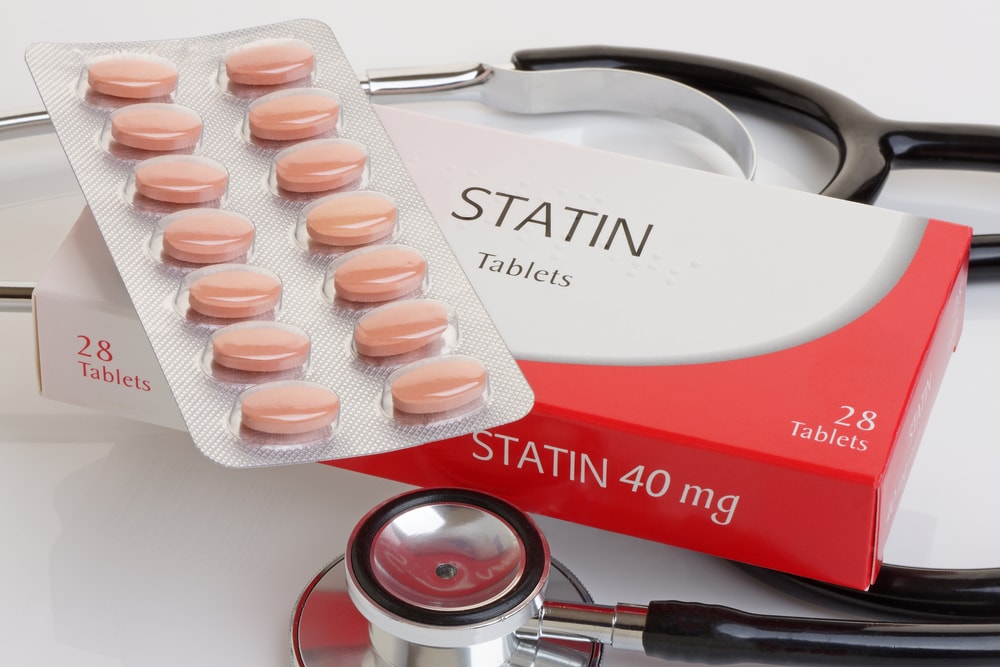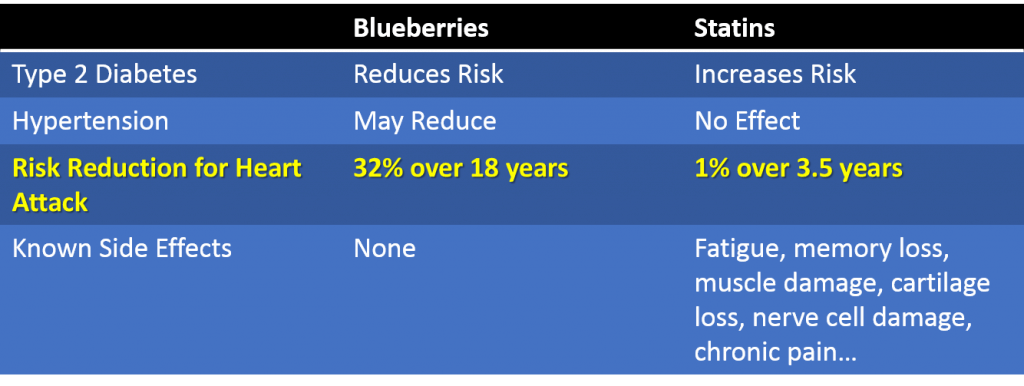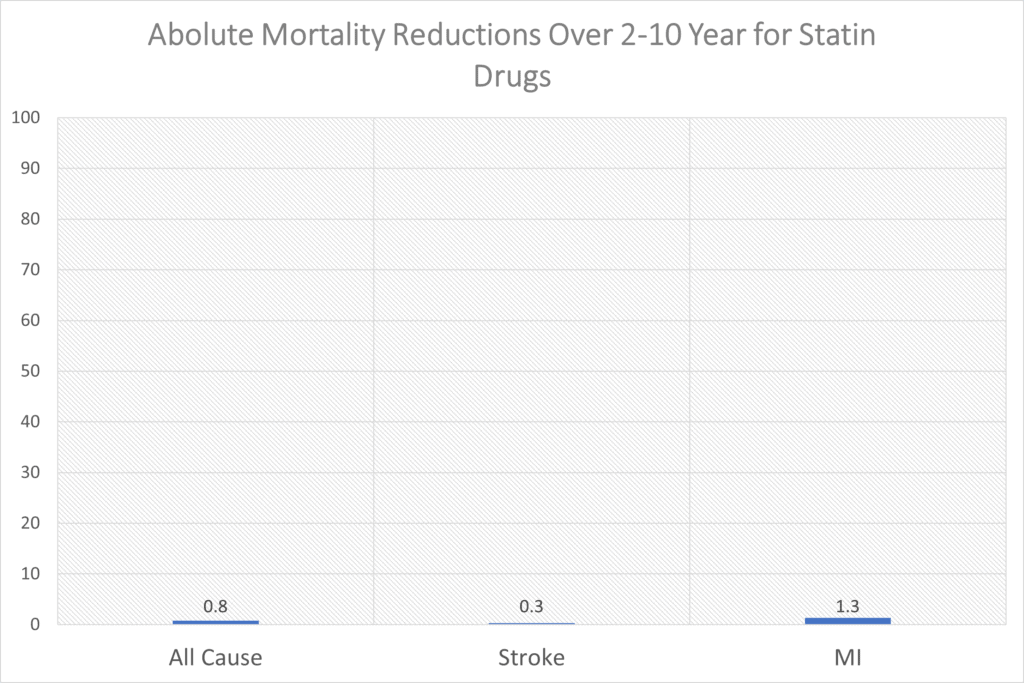Statins Are More Business than Medicine

Credit: Shutterstock
I always put my colleagues into two categories: Doctors and Businessmen. On the doctor side is someone who is first all about Medicine and on the Business side is a Physician who is more about Business than Medicine. Can we do the same with one of the most popular drug classes of all time? Let’s dive in.
Medicine or Business?
Medicine has always been challenging for Physicians. On the one hand, we all know what the research tells us is best for our patients. On the other hand, the business that surrounds medicine constantly seeks to get you to do things for patients that you would never offer your mother or family member. For example, if you read this blog, you know that low back Fusion is a dumb idea for most patients. The clinical data on that issue is very clear. Hence, if you were more about Medicine than Business, you would try to avoid that surgery in every patient you treated. However, Fusion is incredibly profitable as a business plan, so at the same time as the research shows it’s bad Medicine, it’s become one of the popular spine surgeries in the U.S.
How about medications? Can we put them in the same category? The answer is likely yes. This morning we’ll explore Statin drugs, the world’s most popular medications for aging people. These cholesterol-lowering drugs are HUGE business, representing $14.1 billion in U.S. sales for 2020, and sales are expected to reach $17.3 billion by 2027. However, are Statin drugs more Medicine or Business? Let’s dive in.
Statin Commercials
We’ve all seen or been exposed to the sales pitch for cholesterol-lowering Statin drugs. Basically, we know that if you take these drugs to treat “high cholesterol” this will dramatically reduce your chances of having a heart attack. How much protection? Most people believe that Statins can pretty much eliminate death by cardiac arrest or clogged arteries. However, is this true?
The Statin sales pitch to doctors has long claimed that patients could reduce their risk of a heart attack by about 1/3. So while that’s not the same as what many patients believe, it’s pretty darn impressive from your doctor’s standpoint. Hence, physicians have prescribed them widely and some believe they are so effective that they should basically be in the drinking water.
However, what most physicians have neglected to dig into are the details surrounding that 1/3 risk reduction. You see, it’s really a 1/3 relative risk reduction. What does that mean? Let’s dig in here a bit.
A 1/3 absolute risk reduction means what you would think, that if your chance of dying from a heart attack was 30% over 10 years, then it goes down by 10 points to 20%. However, a relative risk reduction is MUCH less and much more problematic when the odds of death are low. A relative risk reduction of 1/3 means that if your chances of dying from a heart attack were 3% over 10 years, it goes down by 1/3 of 3% or to 2%. Yes, that’s only a measly 1% reduction in absolute risk.
Now, what patient in their right mind would ever take Statin drugs if their doctor told them that Statin drugs could reduce their heart attack risk over 10 years by 1%? Very few. Hence, the FDA has long allowed the makers of Statins to quote the VERY deceiving relative risk reduction. However, is this true, that Statins have such a microscopic risk reduction as to be barely measurable?
My Blogging on the WEAK Effects of Statin Drugs

A decade ago, I began to blog about the problems with Statin drugs. In 2013 I reviewed new research showing that eating blueberries (image above) was MUCH more effective in reducing heart attack risk than Statins. In 2015 I reported on research showing that Statin drugs harmed mesenchymal stem cells. In 2016 I covered research that was heralded from the rooftops claiming to show that Statins were super effective at preventing heart attack and stroke, but the fine print of that study only showed a minuscule 0.3% risk reduction.
The Brand New Research
Because Statin drugs are such huge business, there’s plenty of money sloshing around in the Pharma system that can find its way into the pockets of Physicians who are cheerleaders for its drug class, Hence, it’s hard for researchers to buck that trend by publishing something real on these drugs. However, that just happened in the form of a meta-analysis.
This “study of studies” was just published in JAMA and reviewed the data on 21 published randomized controlled trials (1). What did they find? Statins reduced the risk of dying from any cause by 0.8%, from stroke 0.4%, and from a heart attack by 1.3%. I graphed that below for scale:

Why graph this on a 0-100% scale? Because that’s the way patients see this data. As you can plainly see, you have to squint to see these reductions. That’s the way that the authors argue this data should ethically be presented to patients. Meaning these risk reductions are pathetic.
In addition, there was zero association between lowering cholesterol and these feeble reductions in risk. Meaning that Statins are sold with the premise that they will lower your bad (LDL) cholesterol and this will, in turn, lower your risk of death. However, this study found that lowering cholesterol wasn’t associated with a lowering of the risk for a heart attack or death. Hence, the whole sales pitch is inaccurate.
The upshot? Statins are more Business than Medicine. The risk reductions, when shared with patients are so tiny that you have to squint to see them. It’s frankly a great example of how the theater of the absurd that we call modern medicine often puts Business interests above clinical reality.
_____________________________________
References:
(1) Byrne P, Demasi M, Jones M, Smith SM, O’Brien KK, DuBroff R. Evaluating the Association Between Low-Density Lipoprotein Cholesterol Reduction and Relative and Absolute Effects of Statin Treatment: A Systematic Review and Meta-analysis. JAMA Intern Med. Published online March 14, 2022. doi:10.1001/jamainternmed.2022.0134

NOTE: This blog post provides general information to help the reader better understand regenerative medicine, musculoskeletal health, and related subjects. All content provided in this blog, website, or any linked materials, including text, graphics, images, patient profiles, outcomes, and information, are not intended and should not be considered or used as a substitute for medical advice, diagnosis, or treatment. Please always consult with a professional and certified healthcare provider to discuss if a treatment is right for you.
